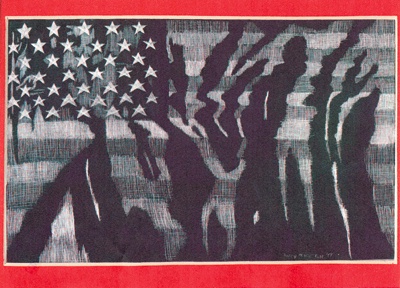All Nonfiction
- Bullying
- Books
- Academic
- Author Interviews
- Celebrity interviews
- College Articles
- College Essays
- Educator of the Year
- Heroes
- Interviews
- Memoir
- Personal Experience
- Sports
- Travel & Culture
All Opinions
- Bullying
- Current Events / Politics
- Discrimination
- Drugs / Alcohol / Smoking
- Entertainment / Celebrities
- Environment
- Love / Relationships
- Movies / Music / TV
- Pop Culture / Trends
- School / College
- Social Issues / Civics
- Spirituality / Religion
- Sports / Hobbies
All Hot Topics
- Bullying
- Community Service
- Environment
- Health
- Letters to the Editor
- Pride & Prejudice
- What Matters
- Back
Summer Guide
- Program Links
- Program Reviews
- Back
College Guide
- College Links
- College Reviews
- College Essays
- College Articles
- Back
Popular Suffrage
“Political control remained in the hands of the traditional elite until the end, in 1825, of the Virginia Dynasty of presidents.” Out of Many 3rd Edition. In the precedent years of the 19th century, only the property owners and taxpayers, or just wealthy white male elites held the right to vote. However, the Westward expansion induced a series of changes in American structure, including inducing a new sense of national pride and political self-reliance along with lower taxpayer prerequisites that facilitated universal suffrage. Following the Panic of 1819 and the Missouri compromises, the Election of 1824 presented the decline of the absolute Democratic-Republican Party, which had dominated in the time of the “Era of Good Feelings.” Furthermore, although John Quincy Adams was elected in the Election of 1824, Andrew Jackson had gained the majority of celebrity, and his inauguration in 1828 hastened the culmination of elitist politics. Jackson’s presidency commenced the “Age of the Common Man”, the rise of the Democratic Party, and a coalition of North, South, and West. Conversely, much of the female and minority patrons of the United States had not yet been enfranchised; free African Americans were still denied the rights to vote, hold office, and serve in state militia and juries, while women continued to be treated as the dependent subordinates of a patriarchal society.

Similar Articles
JOIN THE DISCUSSION
This article has 0 comments.
